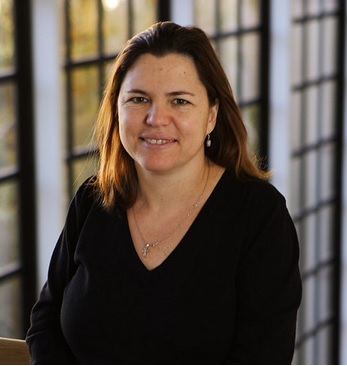Research into Acupuncture for the Treatment of Cystic Fibrosis in Teenagers and Young Adults
Up to 59% of patients with Cystic Fibrosis (CF) experience
significant pain and discomfort that may decrease their quality of life. The research we are conducting at Stanford University School of Medicine and Lucile Packard Children’s Hospital Stanford, generously funded by the Tracie Lawlor Trust for CF, is investigating whether acupuncture can help teens and young adults with CF improve their pain and sleep. Our overall goal is to determine if acupuncture is a safe, feasible and effective integrative medicine approach that may improve CF patients’ pain and quality of life.
We, Dr. Brenda Golianu, an anesthesiologist, and Dr. Ann Ming Yeh, a gastroenterologist, are leading this pilot study, with a larger cross-disciplinary team. We are both physicians and certified medical acupuncturists, and have completed fellowships in Integrative Medicine at the University of Arizona. Medical acupuncture has been used for many years to help alleviate chronic pain in various parts of the body. However, few studies have been conducted to examine the efficacy of medical acupuncture in reducing the pain or other symptoms of discomfort experienced by teens and young adults with CF.
We are investigating whether a regimen of one medical acupuncture treatment per week for four weeks could be effective in improving young CF patients’ pain, sleep, and quality of life. Using a randomized placebo-controlled crossover study design, study participants were assigned to initially receive either traditional medical acupuncture or sham (pretend) acupuncture. After the first cycle of true or sham treatment, the patients had a 2-week waiting period. Then those who had received sham acupuncture received true acupuncture, and those who had received true acupuncture received sham acupuncture. Thus, all participants had a chance to benefit from the therapeutic approach.
To help us determine acupuncture’s efficacy in improving CF patients’ pain, we measured each participant’s pain before and after each treatment and on each day of the study between treatments. We also measured participants’ sleep duration and sleep quality. To more broadly evaluate important quality of life measures, such as fatigue and energy level, we used the Cystic Fibrosis Quality of Life Questionnaire. We are now in the data analysis phase and anticipate our pilot study’s completion at the end of summer. We greatly appreciate the support of the Tracie Lawlor Trust for CF and its many wonderful supporters and hope our work will contribute to the well-being of young people with CF.
========================================================================
*The opinion(s) expressed herein are the sole opinion of the author are not necessarily the opinion(s) of the Tracie Lawlor Trust. Always consult your physician and healthcare team before making any changes to your medical regime. For information purposes only not to be considered medical advice. Please see Disclaimer
– See more at: http://www.tracielawlortrust.com/category/complementary-intergrated-medicine/#sthash.lRiauVIk.dpuf

